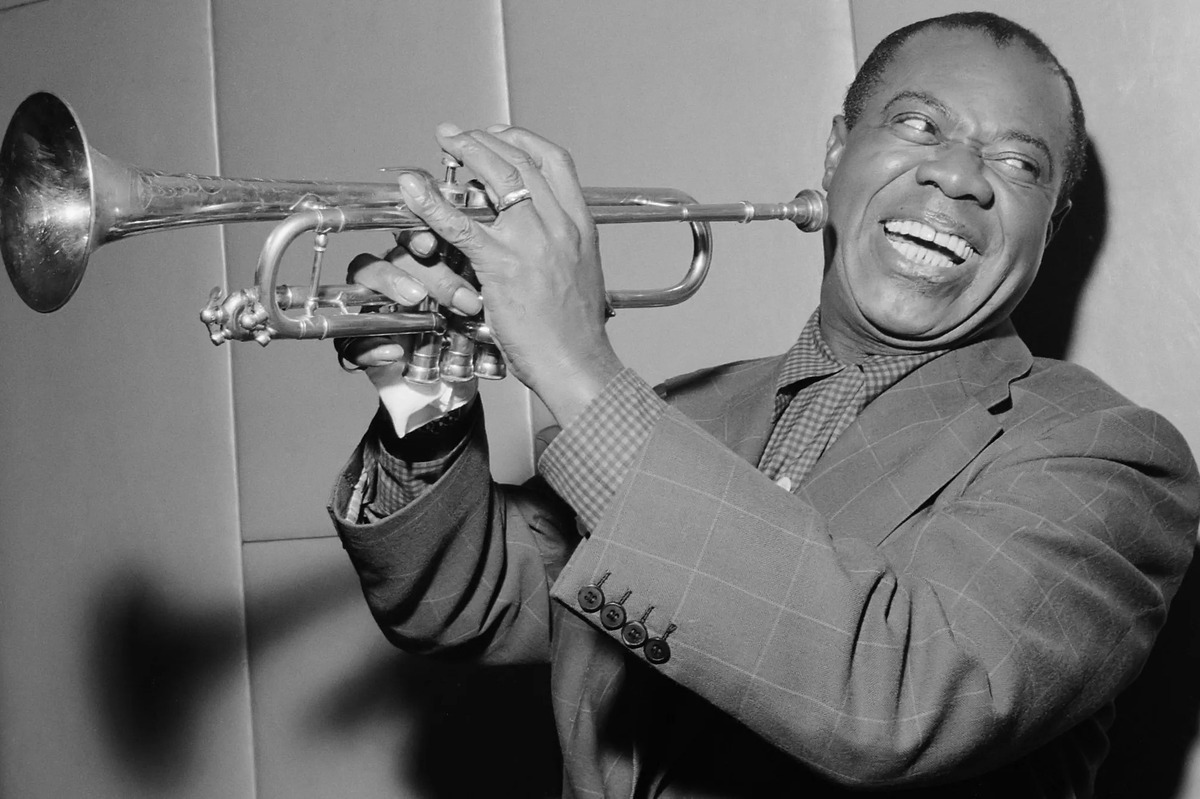
Who was Louis Armstrong? Known as "Satchmo" or "Pops," Louis Armstrong was a legendary jazz musician whose influence on music is still felt today. Born in New Orleans in 1901, Armstrong's journey from a troubled childhood to becoming one of the most celebrated trumpeters and vocalists in history is nothing short of inspiring. His unique style, characterized by his gravelly voice and virtuosic trumpet playing, revolutionized jazz and popular music. Armstrong's charisma and talent transcended racial barriers, making him a global icon. Whether you're a jazz enthusiast or just curious about this musical genius, these 22 facts will give you a deeper appreciation for Louis Armstrong's incredible life and legacy.
Early Life and Background
Louis Armstrong, a name synonymous with jazz, had a fascinating life that began in humble beginnings. Let's explore some intriguing facts about his early years.
-
Born on August 4, 1901, in New Orleans, Armstrong grew up in a neighborhood known as "The Battlefield" due to its rough reputation.
-
His father abandoned the family shortly after his birth, leaving his mother to raise him and his sister.
-
Armstrong was sent to live with his grandmother at age five, where he developed a love for music by listening to the sounds of New Orleans.
-
At age 11, he was sent to the Colored Waif's Home for Boys after firing a gun into the air during a New Year's Eve celebration. There, he learned to play the cornet.
Musical Beginnings
Armstrong's journey into the world of music started early and was marked by significant milestones. Here are some key moments from his early musical career.
-
He joined a local band led by Joe "King" Oliver, who became his mentor and taught him the intricacies of jazz.
-
In 1918, Armstrong replaced Oliver in Kid Ory's band, one of the most popular bands in New Orleans at the time.
-
By 1922, he moved to Chicago to join Oliver's Creole Jazz Band, marking his first major break in the music industry.
-
Armstrong made his first recordings with Oliver's band in 1923, which showcased his exceptional talent and unique style.
Rise to Fame
Armstrong's talent soon catapulted him to national and international fame. Let's look at some pivotal moments that defined his rise.
-
In 1924, he joined Fletcher Henderson's Orchestra in New York, where he influenced the band's style with his innovative trumpet playing.
-
Armstrong's recordings with his Hot Five and Hot Seven bands in the late 1920s are considered some of the most influential in jazz history.
-
His rendition of "Heebie Jeebies" in 1926 popularized scat singing, a vocal improvisation using nonsensical syllables.
-
Armstrong's 1929 recording of "Ain't Misbehavin'" became a major hit and solidified his status as a jazz superstar.
Personal Life
Armstrong's personal life was as colorful as his music. Here are some interesting facts about his relationships and lifestyle.
-
He married four times, with his most enduring marriage being to Lucille Wilson, a dancer at the Cotton Club.
-
Armstrong was known for his love of food, particularly red beans and rice, which he often mentioned in interviews.
-
Despite his fame, he remained humble and was known for his generosity, often giving money to friends and strangers alike.
-
Armstrong was an avid writer, penning numerous letters and autobiographies that provide insight into his thoughts and experiences.
Legacy and Impact
Armstrong's influence on music and culture is immeasurable. Here are some facts that highlight his enduring legacy.
-
He was the first African American to host a national radio show in 1937, breaking racial barriers in the entertainment industry.
-
Armstrong's 1964 recording of "Hello, Dolly!" knocked The Beatles off the top of the charts, making him the oldest artist to achieve a number one hit at age 63.
-
He appeared in over 30 films, bringing jazz to a wider audience through his charismatic performances.
-
Armstrong's distinctive gravelly voice and virtuosic trumpet playing have inspired countless musicians across various genres.
-
He received numerous awards and honors, including a Grammy Lifetime Achievement Award in 1972.
-
Armstrong's home in Queens, New York, is now a museum dedicated to his life and legacy, attracting visitors from around the world.
Armstrong's Legacy Lives On
Louis Armstrong's impact on music and culture remains undeniable. His innovative trumpet playing, distinctive voice, and charismatic stage presence set him apart. Armstrong didn't just play jazz; he transformed it, influencing countless musicians and genres. Beyond music, his charitable work and advocacy for civil rights showcased his dedication to making the world a better place.
Armstrong's recordings, like "What a Wonderful World," continue to resonate with listeners, old and new. His ability to convey deep emotion through music made him a beloved figure worldwide. Whether you're a jazz aficionado or just discovering his work, Armstrong's contributions are worth celebrating.
His legacy lives on in every note of jazz played today. Armstrong's life reminds us of the power of music to bring joy, inspire change, and connect people across generations.
Was this page helpful?
Our commitment to delivering trustworthy and engaging content is at the heart of what we do. Each fact on our site is contributed by real users like you, bringing a wealth of diverse insights and information. To ensure the highest standards of accuracy and reliability, our dedicated editors meticulously review each submission. This process guarantees that the facts we share are not only fascinating but also credible. Trust in our commitment to quality and authenticity as you explore and learn with us.


